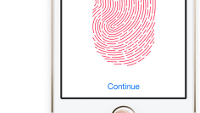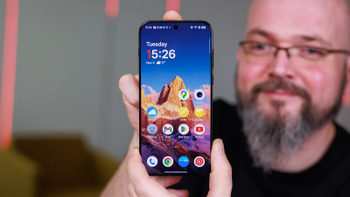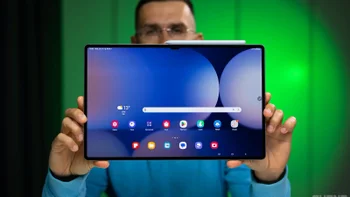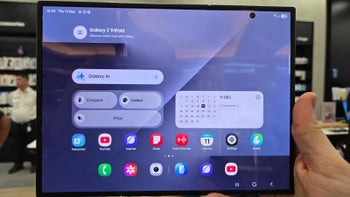Federal Court judge is forcing a woman to unlock her iPhone using Touch ID

Once again, we have a story about an Apple iPhone, a judge, and law enforcement officials who want the phone unlocked so that they can look for evidence on it. The FBI, in this case, fears that it will trigger the feature that automatically wipes an iPhone after ten unsuccessful attempts at cracking the passcode.
Paytsar Bkhchadzhyan, a 29-year old woman from L.A., was recently served with a search warrant obtained by the FBI that forces her to unlock her iPhone using Touch ID. She had pleaded no contest to identity theft and the iPhone had been seized by authorities at her boyfriend's house. Her main squeeze is allegedly an Armenian gang member by the name of Sevak Mesrobian, and searching through her phone is supposedly part of an investigation that has been underway for some time.
Considering that the U.S. Supreme Court has already said that cops can search though a handset with a valid warrant, and that fingerprints of a suspect can be obtained without a judge ordering it, it would make sense that the Federal judge should be able to coerce someone to unlock their iPhone via the touch of a finger. But others believe that law enforcement should be held to a higher standard when it comes to getting a suspect to unlock their phone using a fingerprint scanner, because it could open the proverbial Pandora's box of personal information.
Susan Brenner, a law professor at the University of Dayton, says that by unlocking the phone, Bkhchadzhyan could be committing a self-incriminating act that violates the 5th Amendment. Albert Gidari, the director of privacy at Stanford Law School's Center for Internet and Society, disagrees. He says that touching the fingerprint scanner on her iPhone does not violate Bkhchadzhyan's Fifth Amendment rights because "Unlike disclosing passcodes, you are not compelled to speak or say what's 'in your mind' to law enforcement. 'Put your finger here' is not testimonial or self-incriminating."
source: LATimes via PCMag
"Before cell phones, much of this information would be found in a person's home. This has a warrant. Even though it is a big deal having someone open up their phone, they've gone to a judge and it means there's a likelihood of criminal activity."-George M. Dery III, lawyer and criminal justice professor, California State University
source: LATimes via PCMag
Follow us on Google News










![A new Android bug is making it impossible to install new apps. Are you affected? [UPDATE]](https://m-cdn.phonearena.com/images/article/176703-wide-two_350/A-new-Android-bug-is-making-it-impossible-to-install-new-apps.-Are-you-affected-UPDATE.webp)


Things that are NOT allowed:
To help keep our community safe and free from spam, we apply temporary limits to newly created accounts: